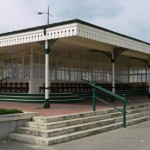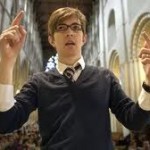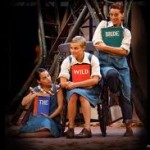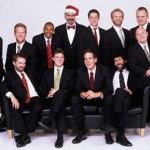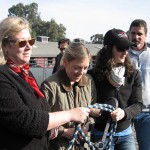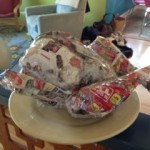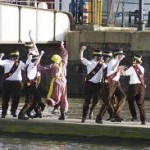 One thing England still does very well during the holidays in spite of competition from the end-of-year sales, is a vivid line in eccentric niche cultural traditions.
One thing England still does very well during the holidays in spite of competition from the end-of-year sales, is a vivid line in eccentric niche cultural traditions.
I spent this Boxing Day afternoon standing under threatening skies outside The Phoenix Pub in the town of Faversham, sipping mulled wine as a bunch of bearded blokes wearing colorful sashes, top hats, white shirts, braces (suspenders) and corduroy trousers (pants) tied just under the knee with rough brown rope, thundered gracefully up and down in a display of “Molly Dancing.”
Molly Dancing is a rogue branch of traditional Morris Dancing (you know, the guys who skip about wearing bells and waving hankies) which was traditionally done by out of work ploughboys in midwinter in the 19th century. There are no bells and hankies in Molly, but it has its own peculiarities: All the male dancers perform in blackface and one of their number, known as “the molly,” capers about cross-dressed as a woman in frilly cap and billowing skirts.
It’s an energetic art form that requires the dancers to perform intricate footwork and high-kneed skips in tight spaces wearing extremely heavy boots with nails in the soles. Wikipedia has a user-friendly overview of molly dancing here.
The members of the Seven Champions Molly Dancing troupe (or “side” as a group of molly dancers is known in local parlance) which was the group that was dancing at the Phoenix today, have wonderful answers to the inevitable questions that audiences ask them about what on earth it is that they think they’re doing.
For instance, when I asked my friend James, a member of Seven Champions, why the dancers perform in blackface, he replied that it’s because they all work down a treacle mine. And when I asked him about the bits of tatty rope wrapped around their trousers, he said, “it’s to stop the rats from getting lost up there.”
This link explains all.
PS According to Wiki-P, the University of Aberdeen ethnomusicologist Elaine Bradtke wrote a PhD thesis on the inherent post-modernism of the Seven Champions. Gosh, it’s nice to be home.

